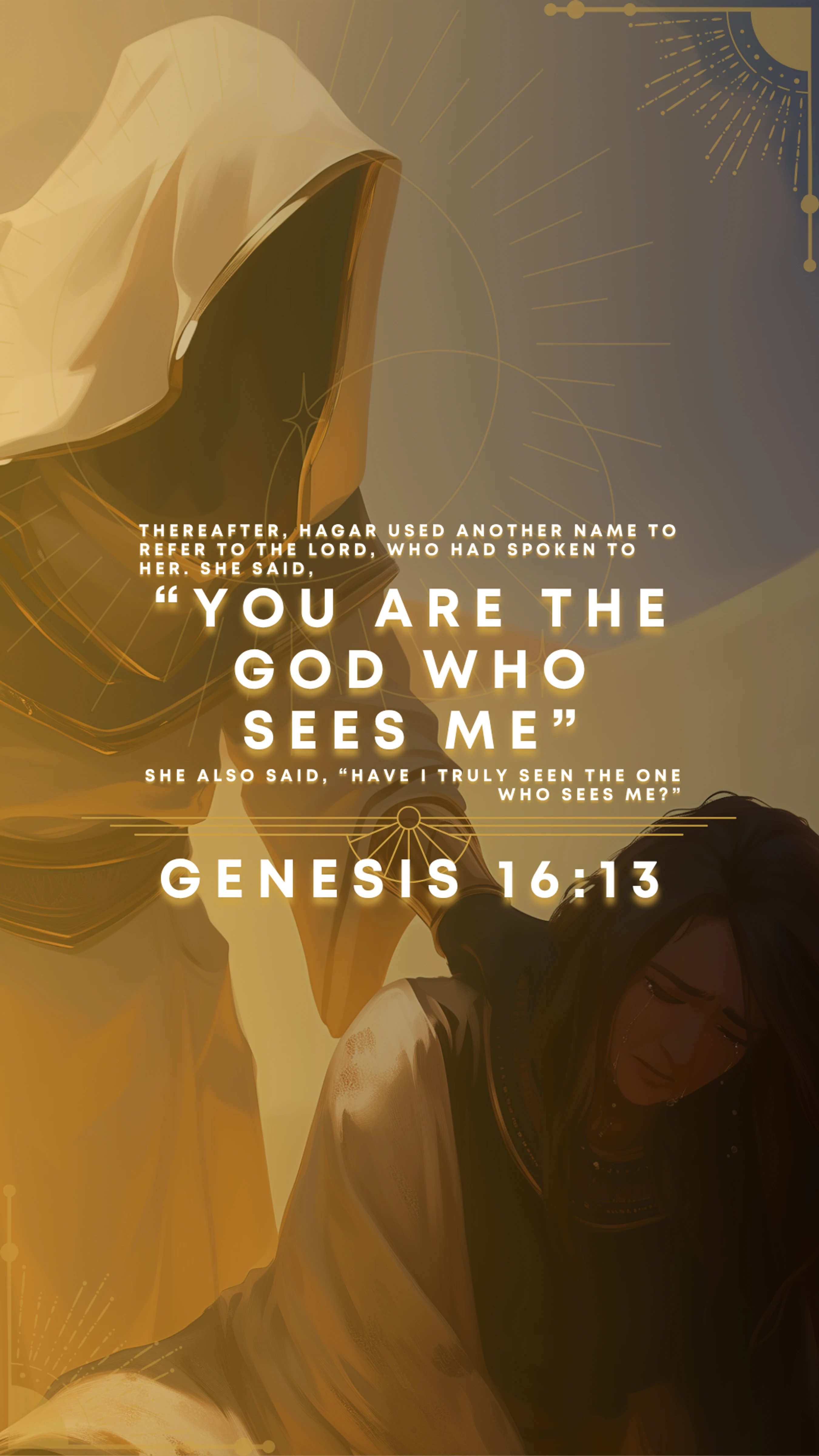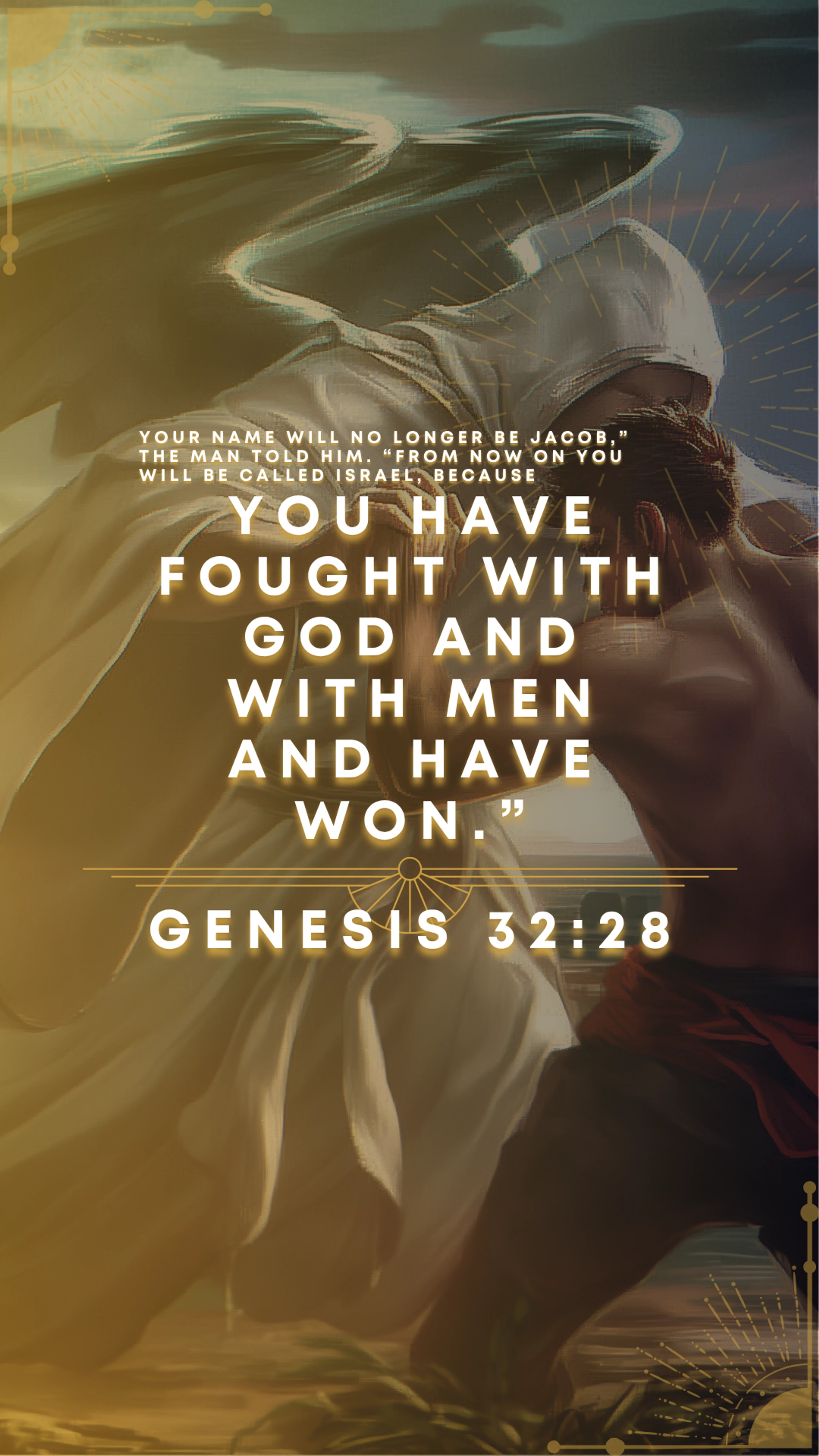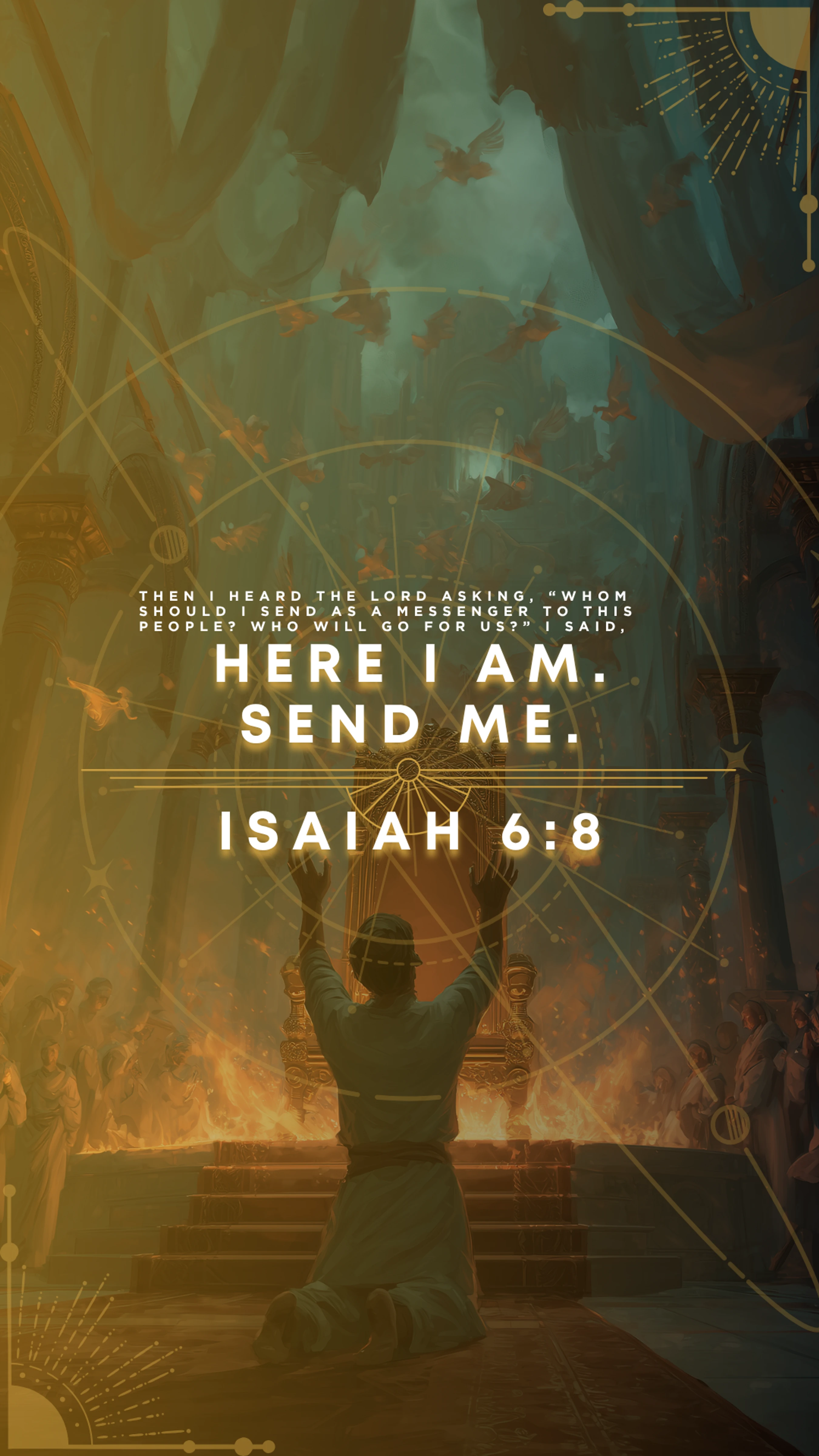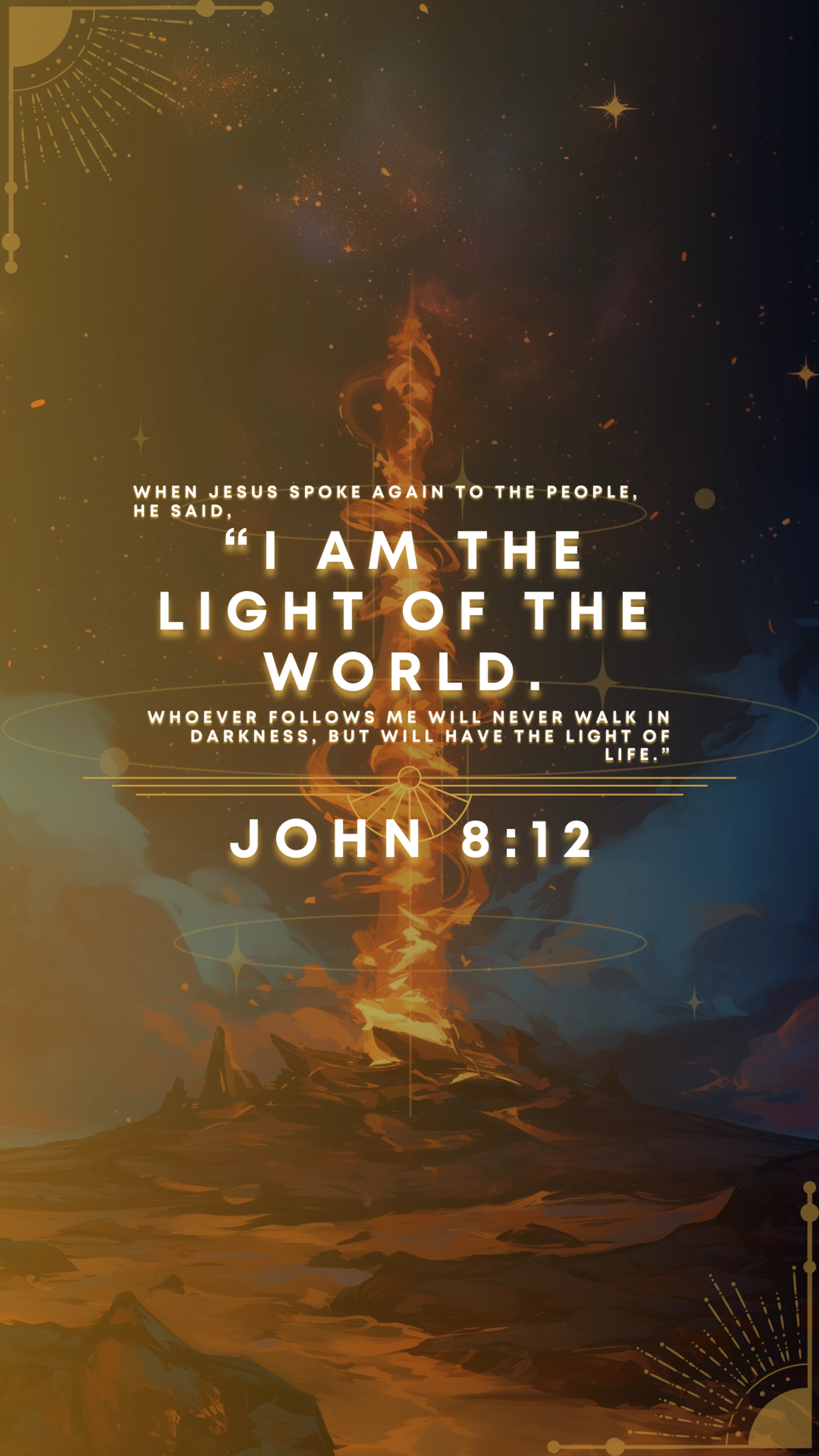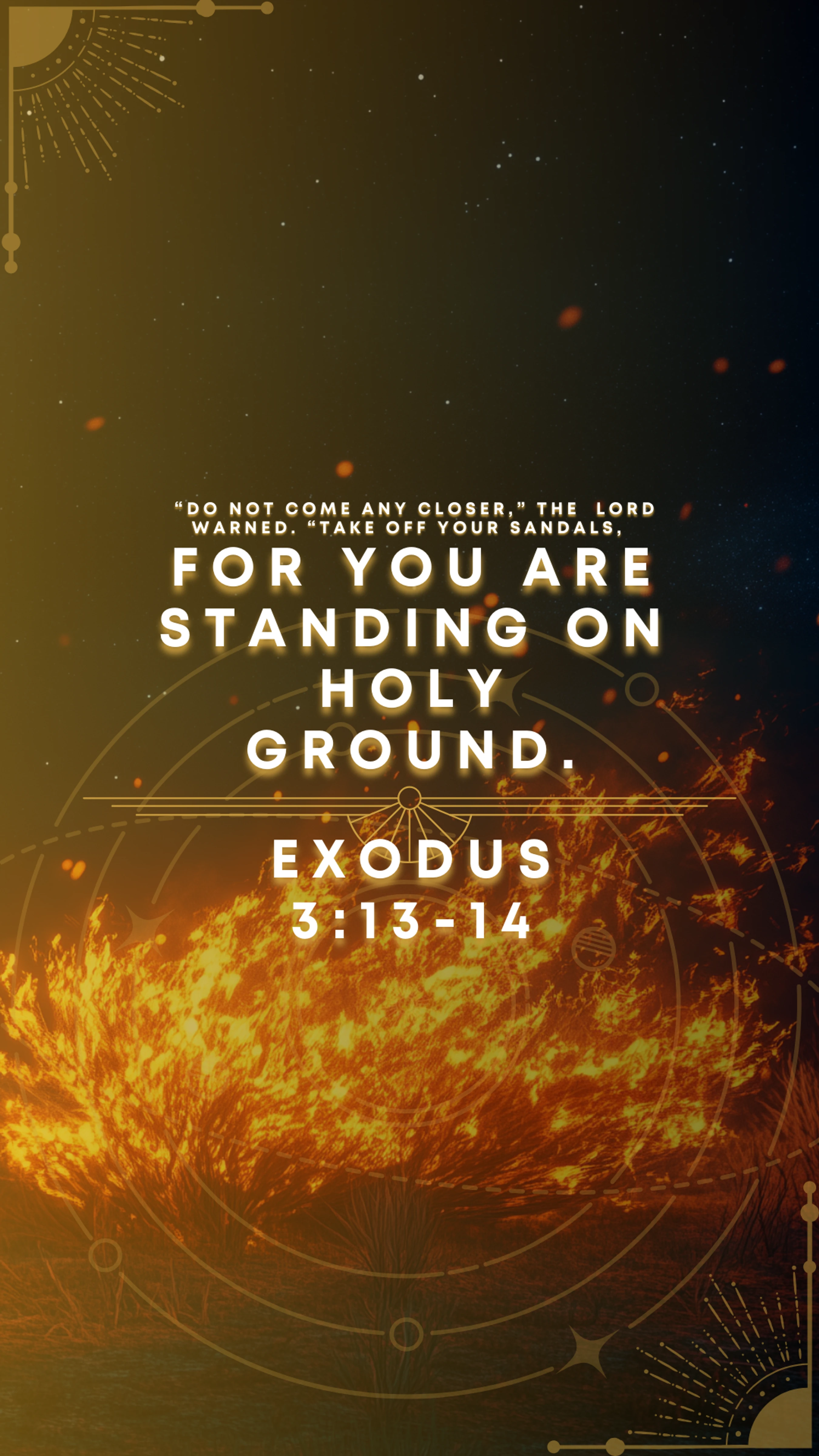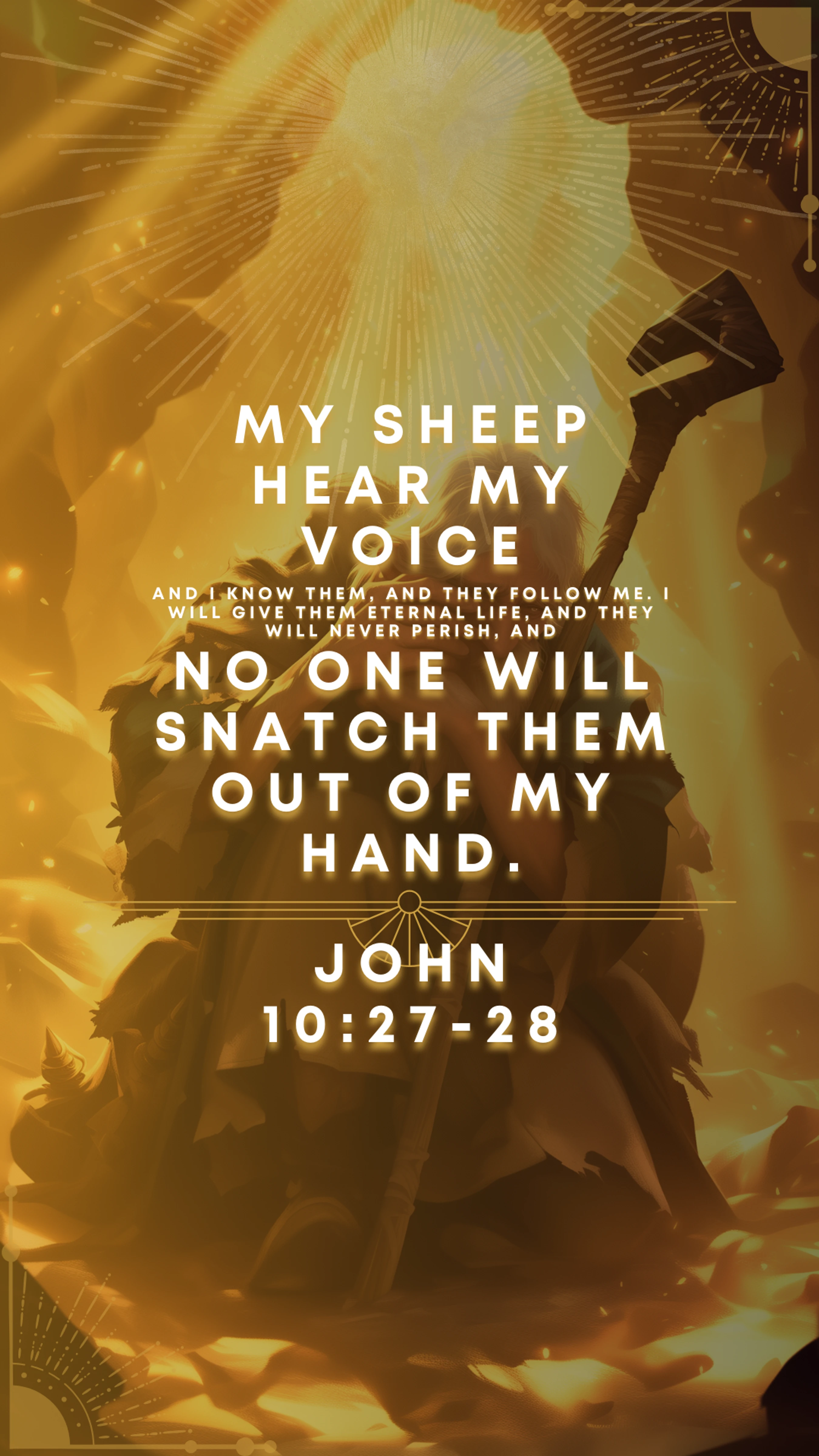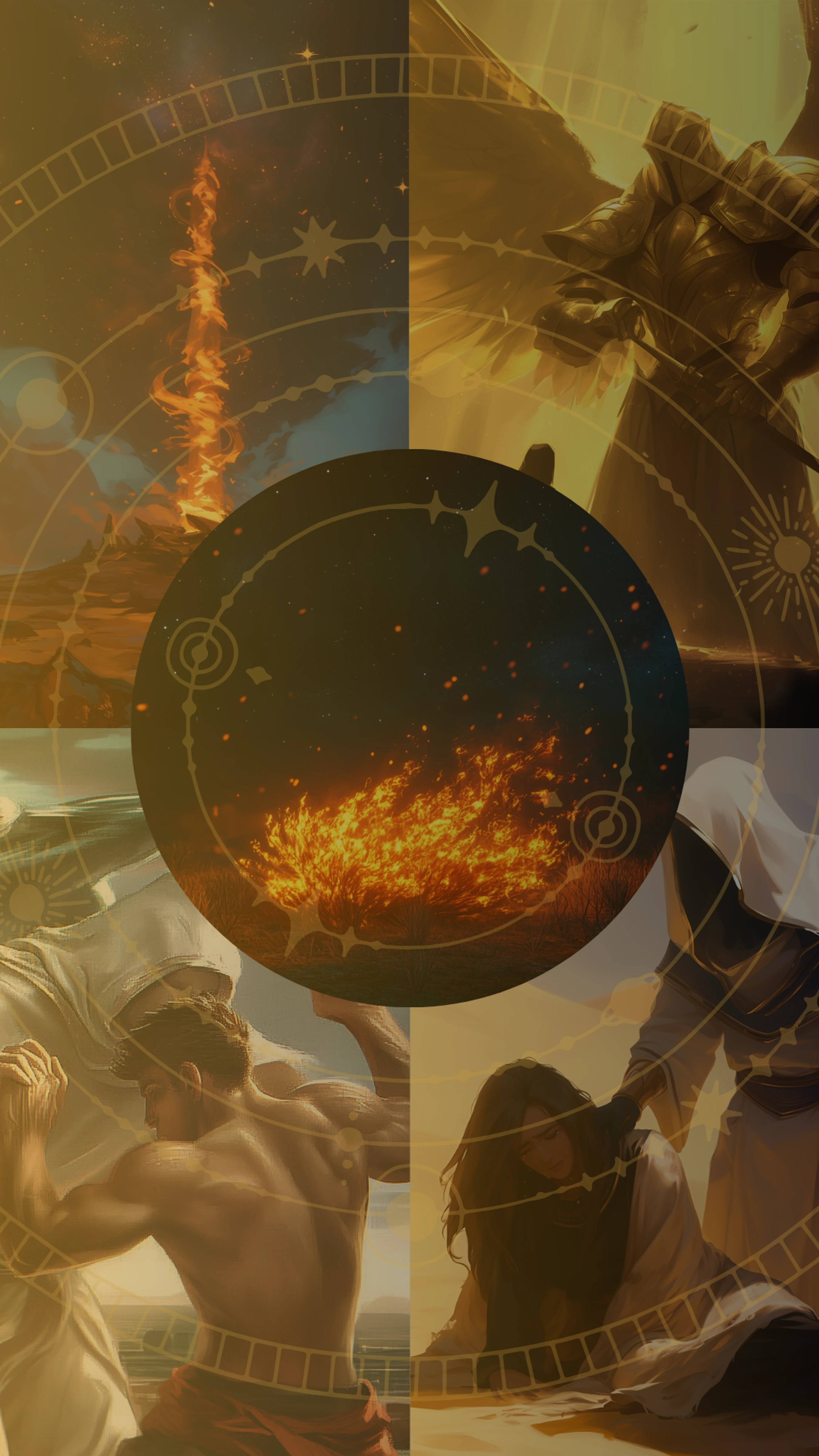Harbingers of The Way
Theophanies that Reveal the Spirit of Christ
Harbingers of The Way invites you to step into the Theophanies and Christophanies in the Old Testament foreshadowing the beauty of the way of Jesus. Where a runaway slave girl met the God who sees, where a desert bush blazed without burning, and where a hovering pillar carved a path of cloud by day and fire by night. From Isaiah’s throne-room visitation that shook the temple to Elijah’s fragile whisper that healed a burned-out prophet, we’ll trace how God’s presence keeps impacting people in every generation. Watch Jacob limp away from an all-night wrestling match with a new name, then join Joshua as he removes his sandals before the sword-drawn Commander of the Lord’s armies. Together these and other encounters form a single, rising chorus: the same God who appeared in the past is leading us in the way of Jesus and towards a tangible experience with Christ. As each week peels back another layer of holy fire, fierce love, and rescuing grace, you’ll find hope knowing that Jesus is waiting to meet you! Dare to follow the signals because the next divine meeting might be waiting just around the bend.
Download the Official Harbingers of the Way Phone Wallpapers
Teaching Topics
- July 6 - The Lord Finds Hagar (Genesis 16:7-14)
- July 13 - Jacob Wrestles with God at Peniel (Genesis 32:24-30)
- July 20 - The Commander of the Lord's Army Meets Joshua (Joshua 5:13-15)
- July 27 - Isaiah's Throne Room Visitation (Isaiah 6:1-8)
- August 3 - Mission Sunday with the Thailand Missions Team
- August 10 - Pillar of Cloud & Fire - God's Guiding Presence (Exodus 13:21-22; Numbers 14:14)
- August 17 - The Burning Bush - God in the Flame (Exodus 3:1-6)
- August 24 - Elijah's Encounter at Horeb - The Stlll Small Voice (1 Kings 19:9-13)
The Lord Finds Hagar (Genesis 16:7–14)
- Scripture Passage: Genesis 16:7–14 – Hagar, pregnant and fleeing abuse, encounters “the Angel of the Lord” by a desert spring. The Angel speaks as God, promising “I will multiply your descendants,” and Hagar realizes God Himself has spoken to her. She names Him “El-Roi,” meaning “the God who sees me,” for she says, “Have I truly seen the One who sees me?”
- Main Theme: God’s Compassionate Awareness. In this theophany, God reveals Himself as the One who sees and cares for the downtrodden. Hagar, an Egyptian maidservant, discovers that the Lord is concerned for her affliction and unborn child. The Angel of the Lord speaks tenderly, giving her hope and a future. This highlights God’s mercy towards the outsider and suffering person. His eyes are on those in distress. Hagar’s use of God’s name (“You are the God who sees me”) shows a personal encounter with the compassionate character of God.
- Harbinger Towards the Way of Jesus: Many theologians consider the Angel of the Lord here a pre-incarnate appearance of Christ. Hagar’s experience foreshadows Jesus’ ministry to the marginalized and broken-hearted. Just as Hagar was a socially powerless outcast yet met by God, so Jesus deliberately sought out and valued the Samaritans, Gentiles, women, and sinners. In Christ, “the God who sees” became flesh. Jesus sees us and knows us completely offering living water in our wilderness of need.
- Life Application: No one is invisible to God. When we feel rejected, alone, or desperate, we can take heart that “El-Roi” sees our affliction and hears our cries. Like Hagar, we can honestly pour out our pain to God and trust His promise for our future. Remember that through Jesus, God sees you and loves you. Let Hagar’s story remind us to show compassion to the hurting, because God cares for them and often meets them in their distress.
Jacob Wrestles with God at Peniel (Genesis 32:24–30)
- Scripture Passage: Genesis 32:24–30 – On the night before meeting Esau, Jacob is alone and finds himself wrestling with a mysterious Man until daybreak. This “Man” touches Jacob’s hip, wrenching it, yet Jacob clings on and says, “I will not let You go unless You bless me!” The Man renames him Israel (“he struggles with God”) and blesses him. Jacob realizes he encountered God Himself: “I have seen God face to face, and yet my life is spared.” He names the place Peniel (“face of God”).
- Main Theme: Surrender and Transformation. This dramatic theophany (often viewed as a pre-incarnate Christ in human form illustrates how an intense encounter with God can transform a person’s identity and strength. Jacob had spent his life wrestling others for blessing; now he literally wrestles God. The struggle through the night represents prayerful struggle and coming to the end of self. When Jacob is finally broken (his hip put out of joint), he clings in desperation, which is in fact true strength. The blessing he sought is a new name and a new character: from “Jacob” (supplanter) to “Israel” (one who wrestles with God and prevails). The prevailing is not by physical strength (God easily disabled him) but by perseverance and reliance on God’s grace. The theme is that God meets us in our struggles and brings us from self-reliance to surrendered faith. Jacob’s limp would forever remind him (and us) that power with God comes through yielded weakness (2 Corinthians 12:9).
- Harbinger Towards the Way of Jesus: This wrestling match points to the spiritual wrestling in prayer and faith that believers experience. Jacob’s persistence foreshadows Jesus’ teachings on persevering prayer. For example, the importunate widow (Luke 18:1–8) and even Jesus’ own night of wrestling in Gethsemane as He surrendered to the Father’s will. Some also see a foreshadow of Christ’s work: the mysterious Man both wounds and blesses Jacob which is analogous to how encountering Christ convicts (wounds our pride) yet ultimately saves us. In a broader sense, Jacob’s new name Israel begins the idea of God’s covenant people, which in the New Testament becomes spiritual Israel composed of those transformed by encountering Christ (Galatians 6:15–16).
- Life Application: Don’t let go of God. In times of trial, when you feel you are “wrestling” in the dark, cling to God in prayer as Jacob did. Sometimes God engages us in a struggle to deepen our faith and character. We may walk away with a limp (a humbling reminder of our dependence), but also with a blessing. Have you been holding onto old identities or self-sufficiency? Surrender them to God and allow Him to rename you according to His purpose. When we yield, saying “I will not let You go, Lord, unless You bless me,” we discover that striving with God leads to peace with God. Our persistent faith delights Him, and He graciously imparts a renewed identity and strength for what lies ahead.
The Commander of the Lord’s Army Meets Joshua (Joshua 5:13–15)
- Scripture Passage: Joshua 5:13–15 – As Joshua prepares to attack Jericho, he looks up and sees a Man standing before him with sword drawn. Joshua approaches and asks, “Are You for us or for our adversaries?” The Man replies, “No, rather I come now as Commander of the Lord’s army.” Realizing this is a divine figure, Joshua falls on his face and worships. The Commander tells him, “Take off your sandal, for the place where you stand is holy.” This is the same command given to Moses at the burning bush. No further instructions are recorded here, but this encounter undoubtedly reassured Joshua of God’s presence as Israel entered the battle.
- Main Theme: God’s Sovereign Leadership and Holiness. This theophany reveals the true Commander of Israel’s forces: it’s not ultimately Joshua, but the Lord Himself. The theme is that God is the one who fights for His people, and our role is to submit to Him. By identifying as neither “for you nor for your enemies” in human terms, God asserts His sovereignty. The question is not whether God is on our side, but whether we are on God’s side. Joshua’s response of worship and removing his sandal shows his recognition that God’s presence is holy and in charge. This encounter likely imparted courage and perspective: the battle of Jericho would be won not by Israel’s might but by God’s command (and indeed the unusual battle plan in Joshua 6 reflects God’s strategy). The drawn sword in the Man’s hand signifies that God’s judgment and power will be with Israel against Canaan’s wickedness, but only under His direction. In sum, the theme is Christ’s Lordship in our battles. He doesn’t come to be an assistant to our cause; He comes as Captain for us to follow.
- Harbinger Towards the Way of Jesus: The “Commander of the Lord’s Army” is widely seen as a Christophany and an appearance of the pre-incarnate Christ as the divine Captain. In Revelation 19:11–14, Jesus is depicted as the rider on a white horse leading the armies of heaven, a clear parallel to this scene. Also, Jesus is called the “Captain of our salvation” (Hebrews 2:10, KJV). He leads God’s people to victory over our greatest enemies (sin, death, Satan). When the Commander tells Joshua to remove his sandals, it echoes the burning bush which is another link identifying Him with the same holy presence (implying this Man is indeed God). In the Gospels, Jesus often came in unexpected ways that challenged human agendas (e.g., many expected Messiah to take Israel’s side against Rome, but He came to establish God’s kingdom in a higher sense). We learn that Christ is not a tribal deity; He is Lord of all, and like the Commander’s answer, He demands our allegiance to Him above all earthly loyalties. Ephesians 6:10–17 also reflects that our battles are spiritual and that Christ provides the armor and leads us by His Spirit. In short, Joshua’s vision foreshadows Jesus as our divine Warrior-King who secures the Promised Land (ultimately, the kingdom of God) for His people.
- Life Application: Submit to God’s command in your battles. Like Joshua, you may be facing intimidating “Jerichos” and challenges or spiritual battles. Remember that the battle is the Lord’s. Ask not “Is God on my side?” but rather, “Am I on His side?” Surrender your plans to the Captain of the Lord’s army. This may mean humbly seeking God’s strategy through prayer rather than charging ahead on your own. It certainly means recognizing Jesus’ authority and holiness: approach Him with worship first, as Joshua did, confident that His presence makes every place holy and every battle winnable by His power. Remove the “sandals” of self-reliance and standing on your own terms. Instead, bow to Christ’s lordship. When He is in command, walls will fall in His timing (Joshua 6). Take courage because you will never fight alone. The Lord of hosts is with us, so fight life’s battles on your knees and with the sword of His Word, knowing the Victor goes before you.
Isaiah’s Throne Room Visitation (Isaiah 6:1–8)
- Scripture Passage: Isaiah 6:1–8 – The prophet Isaiah, in the year King Uzziah died, sees “the Lord sitting on a throne, high and lifted up,” in the temple. The train of His robe fills the temple. Seraphim (fiery angelic beings) stand above Him, each with six wings, crying to one another: “Holy, holy, holy is the LORD of hosts; the whole earth is full of His glory!” The doorposts shake at the voice, and the house is filled with smoke. Isaiah, struck with awe and conviction, cries, “Woe is me, for I am undone! … For my eyes have seen the King, the LORD of hosts.” One seraph flies to him with a live coal from the altar, touching Isaiah’s lips and saying his iniquity is taken away. Then Isaiah hears the Lord’s voice asking, “Whom shall I send, and who will go for Us?” Isaiah responds, “Here am I! Send me.”
- Main Theme: God’s Holiness and Cleansing Commission. This theophany emphasizes above all the utter holiness of God. He is “Holy, holy, holy,” a superlative holiness. The overwhelming majesty of God’s presence reduces Isaiah to despair over his sinfulness (“unclean lips”) and that of his people. The theme is that an encounter with the holiness of God reveals our need for purification. Yet, mercifully, God provides cleansing (the coal from the altar, symbolizing atonement) so that Isaiah can stand in God’s presence and be of service. Another theme is the sovereignty and kingship of God (“My eyes have seen the King”). Earthly kings may die (Uzziah had died, causing national uncertainty), but the true King reigns eternally on the throne. The smoke and shaking thresholds date back to Sinai and the temple dedication (signals of God’s glory) reinforcing that the God of Israel is supremely exalted. Once Isaiah is cleansed, the scene shifts to God’s mission: the question “Who will go for Us?” implies the divine council or Trinity (“Us”). Isaiah’s willing response exemplifies that a true vision of God not only humbles us and cleanses us, but compels us to service. In sum, the theme is the transformative power of experiencing God’s holiness: it brings conviction, purification, and a call to mission.
- Harbinger Towards the Way of Jesus: The Apostle John directly connects Isaiah’s vision to Jesus. In John 12:41 it says, “Isaiah said these things because he saw His glory and spoke of Him,” referring to Jesus. This indicates that the exalted Lord on the throne in Isaiah 6 was in fact the pre-incarnate Christ’s glory. Thus, Isaiah’s vision is a Christophany of Christ as the Holy King of glory. The triple “Holy” anticipates the revelation of God as Triune (some see in the seraphim’s cry an allusion to Trinity, and certainly the “Us” in “who will go for Us” suggests the divine plurality of Persons). In the New Testament, Christ is the one who atones for our sin (the coal from the altar foreshadows the purifying blood of Christ applied to our lips/hearts). Also, just as Isaiah was commissioned after his cleansing, so Jesus, after cleansing His disciples (John 15:3), commissions them: “As the Father has sent Me, I also send you” (John 20:21). The pattern of revelation –> repentance –> cleansing –> mission is seen when Peter first meets Jesus (Luke 5:8-10): Peter says “Depart from me, I am a sinful man,” echoing Isaiah’s “Woe is me,” but Jesus then effectively “cleanses” him with a word of forgiveness and calls him to become a fisher of men. Additionally, the worship of heaven in Revelation 4:8 has living creatures crying “Holy, holy, holy, Lord God Almighty,” directly paralleling the seraphim, confirming that Isaiah’s vision is a glimpse into the continuous heavenly worship of Christ on the throne.
- Life Application: Live in awe of God’s holiness, and embrace His cleansing and call. Isaiah’s experience invites us to a posture of worshipful awe. Have we glimpsed the holiness of God in such a way that we are undone by our sin? Ask God for a clearer vision of His holiness through Scripture and prayer. When you do see God more clearly, expect to see your own heart more clearly as well. Don’t run from conviction; confess with Isaiah, “Woe is me.” Know that God has provided the “live coal” from the altar (Jesus’ sacrifice) to touch your life and remove your guilt. Let Him purify you; you cannot purify yourself. Once cleansed, listen for God’s call. His heart is still asking, “Whom shall I send?” Every encounter with God isn’t just for personal edification; it’s preparation for service. Be willing to say, “Here I am, send me” whether that means reaching out to a neighbor or going to the nations. Finally, maintain the tension of humble reverence and bold mission. Isaiah didn’t become prideful from his vision; he stayed humble (“a man of unclean lips”) yet also became courageous in speaking God’s word. Likewise, seeing Jesus in His glory should humble us deeply, but also embolden us to go and tell others of the King we have seen. Worship fuels mission: the more we truly worship God’s majesty, the more we will respond, “Send me,” to His commission.
Pillar of Cloud and Fire – God’s Guiding Presence (Exodus 13:21–22; Numbers 14:14)
- Scripture Passage: Exodus 13:21–22; Numbers 14:14 – As the Israelites journey from Egypt, the Lord goes before them visibly: “By day in a pillar of cloud… by night in a pillar of fire, to give them light”, never departing from them. Later, Moses reminds the people that even other nations have heard, “You, O Lord, are seen face to face, and Your cloud stands over them” during their travels. This continuous theophany lasted throughout the wilderness years, signifying God’s day-and-night presence with His people.
- Main Theme: Guidance, Protection, and Light. The pillar of cloud and fire represents God as Guide and Guardian. By day, the cloud gave shade and led the way; by night, the fire provided light in the darkness. The theme is God’s faithful guidance and protection of His covenant people. He is not a distant deity; He goes before His people, indicating the next steps and encamping with them. The cloud also symbolized God’s glory and mystery. It both revealed and concealed His presence. When the cloud moved, Israel moved; when it stayed, they stayed. A lesson in dependence and obedience to God’s direction. The fiery aspect at night brought comfort and reassurance of God’s watchful care when things were dark. Together, the cloud and fire show God’s presence adapting to our needs (shade in the heat, light in the night) always exactly what His people required.
- Harbinger Towards the Way of Jesus: The pillar of cloud and fire finds fulfillment in Jesus and the Holy Spirit. Jesus said, “I am the light of the world. Whoever follows Me will not walk in darkness, but will have the light of life” (John 8:12). Just as the Israelites followed the pillar, we follow Jesus as our guiding light. Paul even alludes that Christ was with Israel: “Our fathers…were all under the cloud…and all drank from the spiritual Rock… and that Rock was Christ” (1 Corinthians 10:1–4). This suggests the same divine presence in the wilderness is now revealed in Christ. Additionally, the Holy Spirit in the New Testament takes on the guiding role: He appeared as tongues of fire at Pentecost, signaling God’s indwelling presence (Acts 2:3-4). We, the Church, are now led by the Spirit’s guidance day by day (Galatians 5:18), much as Israel was led by the cloud. Finally, the constancy of God’s presence then (“never departed”) foreshadows Jesus’ promise: “I am with you always” (Matthew 28:20).
- Life Application: Follow the Lord’s leading one step at a time. The Israelites had to trust God for each day’s guidance, moving only at His command. In our lives, we’re called to a similar trust by staying sensitive to the Holy Spirit’s direction. Are you allowing God to be the cloud by day (guiding your decisions and providing refreshment in stress) and the fire by night (giving hope and clarity when you face darkness)? This theophany encourages us that God’s presence is with us continually. Even if you feel like you’re in a wilderness, God has not left you. Look for signs of His guidance (through Scripture, wise counsel, inner prompting). Just as the pillar gave light to Israel but darkness to the pursuing Egyptians (Ex 14:19–20), God’s presence will protect you from enemies and illuminate your path. Trust and obey, for there’s no better guide through life’s unknown terrain than the Lord Himself.
The Burning Bush – God in the Flame (Exodus 3:1–6)
- Scripture Passage: Exodus 3:1–6 – Moses, exiled in Midian, encounters a bush that is burning yet not consumed. “The Angel of the Lord appeared to him in a flame of fire out of the midst of a bush,” and as Moses approaches, God calls his name from the bush. Moses is told to take off his sandals for the ground is holy. God then declares, “I am the God of your father, the God of Abraham, Isaac, and Jacob,” and Moses hides his face, afraid to look at God. This marks Moses’ commissioning to lead Israel out of Egypt.
- Main Theme: God’s Holiness and Redeeming Presence. The burning bush theophany showcases God’s holiness (the fire that does not consume – a pure, self-sustaining flame) and His condescending grace to reach Moses. The bush on fire yet not burnt symbolizes God’s power and glory dwelling in the midst of the ordinary. The theme is twofold: First, God is holy – Moses must approach with reverence (barefoot, face hidden). Second, God is compassionately present – He has “surely seen the affliction” of His people and is coming down to deliver them. The revelation of God’s personal name “I AM WHO I AM” happens in this context, emphasizing His self-existence and eternal presence. This is a pivotal encounter where Moses not only learns God’s name and nature but also receives God’s redemptive mission for Israel.
- Harbinger Towards the Way of Jesus: The Angel of the Lord in the bush is widely seen as a pre-incarnate Christ appearing to commission Moses. Notably, Jesus later identifies Himself with the voice from the bush: “Before Abraham was, I AM” (John 8:58), directly echoing Exodus 3:14. This bold claim means Jesus is the same “I AM” who spoke to Moses. Moreover, the bush that burned without being consumed can symbolize Christ’s incarnation – the fullness of God’s fiery presence dwelling in the humble “bush” of human flesh without consuming it. The holiness of God that once required Moses to remove his sandals is the same holiness that Jesus embodied; through Christ, however, we are invited to draw near. Additionally, Moses’ role as a deliverer from slavery foreshadows Christ as the ultimate deliverer who hears our cries and sets us free from sin.
- Life Application: Approach God with reverence and readiness. Moses’ life changed when he turned aside to see the bush. We learn to pay attention. God may light an unexpected fire in our everyday surroundings to draw us closer. When He does, respond with humility and worship. Acknowledge God’s holy presence by “removing your sandals” – repent of sin, surrender your comfort zone. Yet also take heart that this Holy God knows your name and promises, “I will be with you” (Ex 3:12). If you sense God calling you to a task (as Moses was), remember that the Great “I AM” who sends you will also empower you. In Christ, the Holy One dwells with us and in us like a refining fire that does not destroy but purifies. Let the image of the burning bush remind you that God’s presence can transform common ground into holy ground in your life.
Elijah’s Encounter at Horeb – The Still Small Voice (1 Kings 19:9–13)
- Scripture Passage: 1 Kings 19:9–13 – The prophet Elijah, discouraged and on the run, takes refuge in a cave at Mount Horeb (Sinai). The Lord tells him to stand on the mountain. A powerful wind tears at the rocks, an earthquake shakes the ground, and a fire passes by. But the Lord is not in those dramatic events. After the fire, Elijah hears “a still small voice” (a gentle whisper). Recognizing God’s presence in the quietness, Elijah wraps his face in his cloak and goes out to the cave entrance. There God speaks to him, giving direction and hope for the future.
- Main Theme: God’s Gentle Nearness and Restorative Voice. This unique theophany contrasts God’s usual dramatic appearances. The wind, quake, and fire recall the classic manifestations of God’s power (like at Sinai), yet God chooses to reveal Himself to Elijah in a gentle whisper. The theme is that God is not limited to the spectacular; He often chooses to communicate in quiet, intimate ways. For a prophet who was used to bold shows of power (Elijah had just called down fire on Mt. Carmel in chapter 18), this is a lesson in the value of stillness and the personal voice of God. Elijah had been zealous and felt alone, thinking all was lost. God’s whisper both rebukes (gently: “What are you doing here, Elijah?”) and reassures by giving him instructions to anoint new leaders and revealing there are 7,000 faithful remaining. The presence of God in the whisper revived Elijah’s sense of purpose. The theme can be summarized as God’s tender care for His weary servant. When we are broken and exhausted, God may not overwhelm us with more fire and noise; instead, He heals with a soft-spoken word in the quiet. It teaches us that God’s presence is not always in the sensational; His voice is often heard in solitude and silence, speaking directly to the heart.
- Harbinger Towards the Way of Jesus: God’s self-revelation in a “still small voice” foreshadows the gentle and humble way Christ often dealt with people, as well as the work of the Holy Spirit in guiding believers. Jesus did not come the first time in an earthquake or fire (those accompany the second coming); rather, He came as a baby in a quiet night, and often withdrew to solitary places to pray and hear the Father. Isaiah 42:3 prophesied of Messiah, “A bruised reed He will not break, and a faintly burning wick He will not quench” which describes the gentle way of Jesus with discouraged people, much as God dealt tenderly with Elijah. Furthermore, the New Testament emphasizes the inner witness of the Holy Spirit. Sometimes it is a quiet prompting and the peace of God ruling in our hearts (Colossians 3:15) as ways God leads us, more than external signs. The wind, earthquake, fire might also remind us of the phenomena at Pentecost (wind and fire) or at the crucifixion (earthquake); but in daily guidance, believers learn to listen to the Spirit’s voice, which is often a still small impression aligning with Scripture. We also see Jesus himself experiencing an “angel strengthening Him” quietly in Gethsemane (Luke 22:43) rather than a dramatic rescue. Lastly, when Jesus appeared to the discouraged disciples after His resurrection, He often came gently (e.g., to Mary Magdalene in the garden quietly calling her name, John 20:14–16). Thus, Elijah’s Horeb encounter foreshadows the quieter, nurturing aspect of God’s communication fulfilled in Christ and the Spirit.
- Life Application: Seek God in the silence. Elijah’s story encourages us that after the storms of life, we need to pause and listen for God’s whisper. In our noisy world, it’s crucial to cultivate moments of quiet prayer and reflection, because God often speaks in a “gentle whisper” to our hearts. Don’t always expect or demand dramatic signs; learn to discern God’s voice in Scripture, in the inner conviction or peace, in the quiet counsel of the Spirit. When burnt out or fearful like Elijah, our first need is not a miraculous display but a fresh word from God’s heart. Rest in God’s presence: sometimes He will simply reassure you that you are not alone and that He still has work for you to do. Notice Elijah wrapped his face with his cloak, a gesture of humility and readiness to hear; we too should approach God with reverence and openness when He speaks softly. Finally, remember that God cares for the brokenhearted. If you feel like a “faintly burning wick,” trust that God will not snuff you out but gently restore you. He knows whether you need fire or a whisper. Be willing to let Him minister to you in His way. And be ready to follow the instructions that come in the quiet moments, just as Elijah went on to anoint Hazael, Jehu, and Elisha as God directed, thereby ushering in the next chapter of God’s plan.

